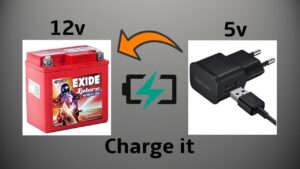Can cold weather cause a battery to die? The answer is yes, it certainly can. If you’ve ever faced the frustration of a dead battery on a freezing winter morning, you know how inconvenient and stressful it can be. But why does this happen? As the temperature drops, the chemical reactions within the battery slow down, reducing its ability to generate sufficient electrical power. This can lead to a weakened battery and, ultimately, a dead one. In this article, we’ll delve deeper into the impact of cold weather on batteries and explore some tips to prevent battery failure during the winter months. So, let’s get started!
Can Cold Weather Cause a Car Battery to Die?
Cold weather can be tough on car batteries, and it’s a common issue that many car owners face during the winter months. The cold temperatures can affect the performance and lifespan of car batteries, often leading to a dead battery when you least expect it. In this article, we will explore the reasons why cold weather can cause a car battery to die and discuss some preventive measures you can take to avoid this frustrating situation.
1. How Does Cold Weather Affect Car Batteries?
Car batteries are filled with a chemical solution called electrolyte, which produces electrons to generate the electrical energy needed to start your vehicle. The cold weather affects the battery in the following ways:
1.1 Chemical Reactions Slow Down:
Cold temperatures slow down the chemical reactions inside the battery, making it harder for the electrolyte solution to produce the necessary electrons. This means that when you try to start your car, the battery may not have enough power to turn over the engine.
1.2 Reduced Battery Capacity:
The cold weather reduces the overall capacity of the battery, meaning it can hold and deliver less electrical energy than it would in warmer temperatures. This reduction in capacity can further limit the battery’s ability to start the engine or power electrical components in the car.
1.3 Increased Internal Resistance:
Low temperatures increase the internal resistance of the battery. This resistance makes it more difficult for the battery to supply the required power to start the engine, as the electrical current encounters more resistance within the battery itself.
2. Signs of a Weak Battery in Cold Weather
It’s important to be aware of the signs that indicate your car battery is struggling in cold weather. Recognizing these signs early on can help you take preventive measures or seek assistance before the battery completely fails. Here are some common signs of a weak battery in cold weather:
2.1 Slow Cranking:
If you notice that your engine cranks slowly or takes longer than usual to start, it could indicate a weak battery. Cold temperatures make it harder for the battery to provide the required power to turn over the engine.
2.2 Dim Lights:
When you start your car, pay attention to the brightness of your headlights and interior lights. If they appear dimmer than usual, it suggests that the battery is struggling to supply enough power to the electrical system.
2.3 Clicking Sound:
If you hear a clicking sound when you turn the key in the ignition, it could be a sign that the battery doesn’t have enough power to engage the starter motor. This clicking sound is often referred to as the “click of death.”
2.4 Electrical Malfunctions:
Another telltale sign of a weak battery is the malfunctioning of electrical components in your car. These can include issues with power windows, radio, or even the dashboard lights flickering.
3. Tips to Prevent Battery Drain in Cold Weather
While cold weather can be harsh on car batteries, there are several preventive measures you can take to minimize the risk of a dead battery. Here are some tips to help you prevent battery drain in cold weather:
3.1 Keep Your Battery Clean:
Regularly inspect and clean your battery terminals to ensure a solid connection. Battery corrosion can hinder the flow of electricity, reducing battery performance.
3.2 Park in a Garage or Sheltered Area:
Whenever possible, park your car in a garage or a sheltered area to protect it from extreme cold temperatures. Parking indoors helps to keep the battery warmer, which can improve its performance in colder conditions.
3.3 Use a Battery Blanket or Heating Pad:
Consider purchasing a battery blanket or heating pad designed to keep the battery warm during extreme cold weather. These devices can help maintain the battery’s optimal temperature and prevent it from losing power.
3.4 Turn Off Accessories:
Before starting your car, make sure all accessories such as lights, radio, and heating are turned off. This reduces the load on the battery and allows it to focus its power on starting the engine.
3.5 Invest in a Battery Charger:
If you live in an area with consistently cold weather, you may want to invest in a battery charger. These chargers can be used to keep your battery fully charged, ensuring it has enough power to start your car even in extreme cold conditions.
4. What to Do if Your Battery Dies in Cold Weather
Despite taking preventive measures, there may still be instances where your battery dies in cold weather. In such situations, it’s essential to know what steps to take. Here’s what to do if your battery dies in cold weather:
4.1 Jump-Start the Battery:
Using jumper cables, you can jump-start your battery using another vehicle’s battery. Make sure to follow the correct jump-starting procedures to avoid any damage to your vehicle’s electrical system.
4.2 Call for Assistance:
If you’re unable to jump-start your battery or if you don’t have access to another vehicle, it’s best to call for roadside assistance. They can help jump-start your battery or tow your vehicle to a nearby service center if necessary.
4.3 Replace the Battery:
If your battery consistently fails in cold weather or if it’s more than three to five years old, it may be time to replace it. Consult with a professional to determine the appropriate battery replacement for your vehicle.
Cold weather can indeed cause a car battery to die due to various factors such as slower chemical reactions, reduced battery capacity, and increased internal resistance. However, by following preventive measures like keeping the battery clean, parking in a sheltered area, using battery blankets, and turning off accessories, you can minimize the risk of a dead battery in cold weather. If your battery does die, remember to jump-start it safely or seek assistance from a professional. Stay prepared and take care of your car battery to ensure a hassle-free winter driving experience.
Frequently Asked Questions
Can cold weather cause a battery to die?
Yes, extremely cold weather can cause a battery to die prematurely or temporarily lose its charge. The cold temperatures affect the chemical reactions within the battery, slowing them down and reducing the battery’s ability to generate electrical power.
Why does cold weather affect the battery?
In cold weather, the chemical reactions required for a battery to produce electrical power become slower. This reduction in chemical activity leads to a decrease in the battery’s overall capacity, making it harder for it to deliver a sufficient charge to start the engine or power other electrical components in your vehicle.
Does a fully charged battery handle cold weather better?
A fully charged battery tends to handle cold weather better than a partially charged one. When a battery is fully charged, it possesses more energy and is less likely to freeze. Additionally, a fully charged battery has a higher capacity to withstand the reduced chemical reactions caused by the cold temperatures.
How can I prevent my battery from dying in cold weather?
To minimize the risk of your battery dying in cold weather, you can take a few precautions. First, ensure that your battery is in good condition and properly maintained. This includes checking the battery’s age, cleaning any corrosion on its terminals, and ensuring it is securely fastened. Additionally, you can park your vehicle in a garage or use a battery blanket or insulation to provide some warmth.
What should I do if my battery dies in cold weather?
If your battery dies due to cold weather, you can try jump-starting your vehicle using jumper cables and another vehicle with a charged battery. Ensure you follow the correct jump-starting procedures outlined in your vehicle’s manual. If jump-starting doesn’t work, you may need to seek assistance from a professional or replace the battery if it’s old or unable to hold a charge.
Final Thoughts
Cold weather can indeed cause a battery to die. When temperatures drop, the chemical reactions within the battery slow down, reducing its ability to generate and store power. As a result, the battery may struggle to start the engine or provide sufficient energy for the vehicle’s electrical components. It is important to properly maintain the battery during colder months by keeping it fully charged, checking for any signs of wear or corrosion, and using a battery blanket or insulator to provide some protection from the cold. Taking these precautions can help mitigate the risk of a dead battery during cold weather conditions.



